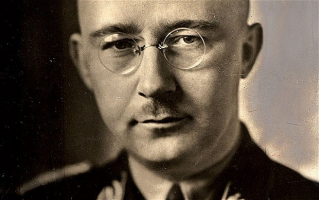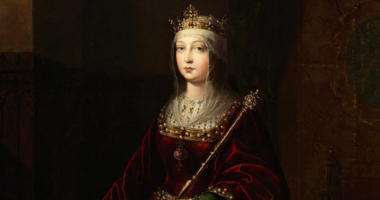Top 7 Interesting Facts about Angela Merkel
On July 17, 1954, Angela Dorothea Kasner, better known by her stage name Angela Merkel, was born in Hamburg, West Germany. Merkel, a physicist by training, ... read more...entered politics following the collapse of the Berlin Wall in 1989. Following the 2005 national elections, Merkel rose to the post of chairwoman of the Christian Democratic Union party, becoming Germany's first female chancellor and one of the key players in the European Union. Let's look at interesting facts about Angela Merkel to learn more about her remarkable life.
-
German politician and scientist Angela Merkel, who is now retired, presided as chancellor of Germany from 2005 to 2021. She formerly held the positions of Leader of the Opposition from 2002 to 2005 and Leader of the Christian Democratic Union from 2000 to 2018. She is a member of the Christian Democratic Union (CDU). Merkel was Germany's first female chancellor. Merkel was regularly referred to be the most powerful woman in the world and the de facto head of the European Union (EU) during her time as chancellor.
When her father, a Lutheran minister, accepted a pastorate in Perleberg, she was only a few months old when she moved from her birthplace of Hamburg in what was then West Germany to East Germany. She earned her Ph.D. in quantum chemistry in 1986, and from that point until 1989, she worked as a research scientist. After the Revolutions of 1989, Merkel entered politics and temporarily worked as the deputy spokesperson for Lothar de Maizière's first democratically elected East German government. Merkel was chosen to represent the state of Mecklenburg-Vorpommern in the Bundestag following the unification of Germany in 1990. Merkel was appointed Minister for Women and Youth in 1991 as Helmut Kohl's protegé. In 1994, she was named Minister for the Environment, Nature Conservation, and Nuclear Safety. Following the CDU's defeat in the 1998 federal election, Merkel was chosen as the party's general secretary. Two years later, following the resignation of Wolfgang Schäuble due to a donations controversy, she was named the party's first female leader and the first female Leader of the Opposition.
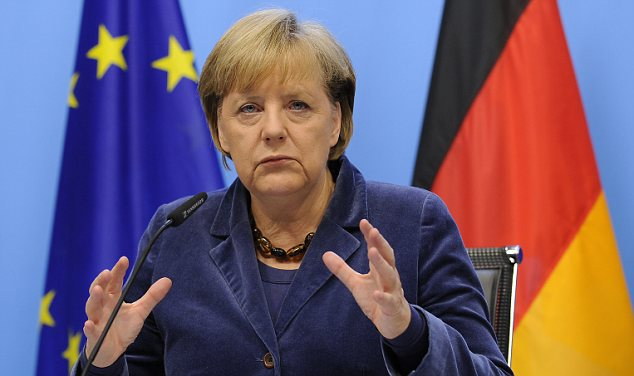
Photo: Vietnamnet 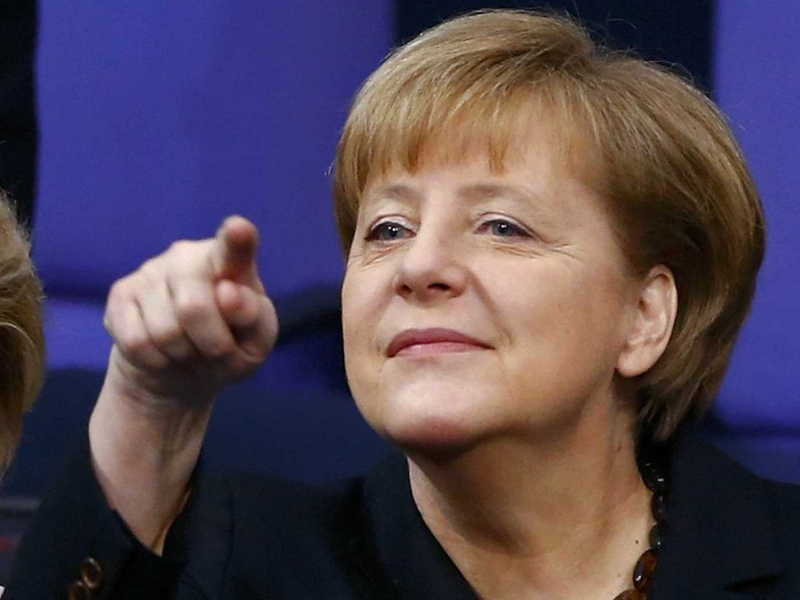
Photo: VietTimes -
True to form, Angela Merkel is "a quarter Polish." We now know that the chancellor nearly had Polish ancestry and that her grandpa was also of Polish descent. Ludwig Kazmierczak, her grandpa, was born in Poznan, then a part of the German Reich, in 1896. The family took great pride in its Polish heritage. Not grandfather Ludwig, who left for Berlin when Poznan was once more reclaimed by the Polish after the First World War. Horst Kazmierczak, Angela's father, was born as a result of his marriage to a Berlin-based lady.
In the early 1930s, the family made the decision to forsake their Polish ties. Following a typical practice, the Kazmierczaks changed their family name from Kazmierczak to Kasner. Merkel was unaware of the father and son's conversion from Catholicism to the Protestant faith until lately. For a lady who was raised in a rectory and whose Protestantism is essential to understanding her personality, that was a perplexing revelation. As soon as Merkel's Polish heritage was made known, a second cousin invited her to supper.
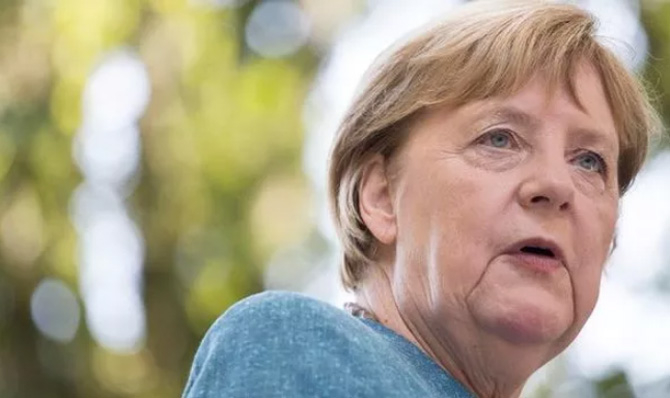
Photo: Ebiz 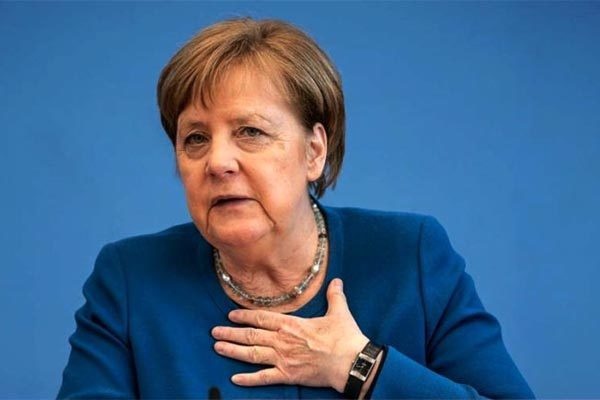
Photo: Vietnamnet -
One of the interesting facts about Angela Merkel, according to people with knowledge of the situation, the DPA news agency reported that German Chancellor Angela Merkel earned a sizeable pension after leaving office, amounting to around 15,000 euros per month or 18,000 USD per month, or 65 percent of the income in parliament. Along with the aforementioned pension, Ms. Merkel also employs private drivers, secretaries, and helpers from the public budget.
Since joining the German parliament in 1990, Ms. Merkel has held the position of chancellor for over 16 years. German Chancellor Angela Merkel earlier said that she will not stand for reelection in the election scheduled for September. This means that Merkel will step down from office following the election. She did not, however, say if she intended to seek for another office in order to continue her career in politics.
Merkel, known as the "Iron Lady," is regarded as one of the most influential people in Europe. She is the one who has led Germany through all of its challenges, including the recent Covid-19 outbreak, the euro crisis, climate change, and immigration concerns. In a recent poll conducted by the publication Spiegel, 75% of respondents gave German Chancellor Merkel favorable marks for her handling of these issues.
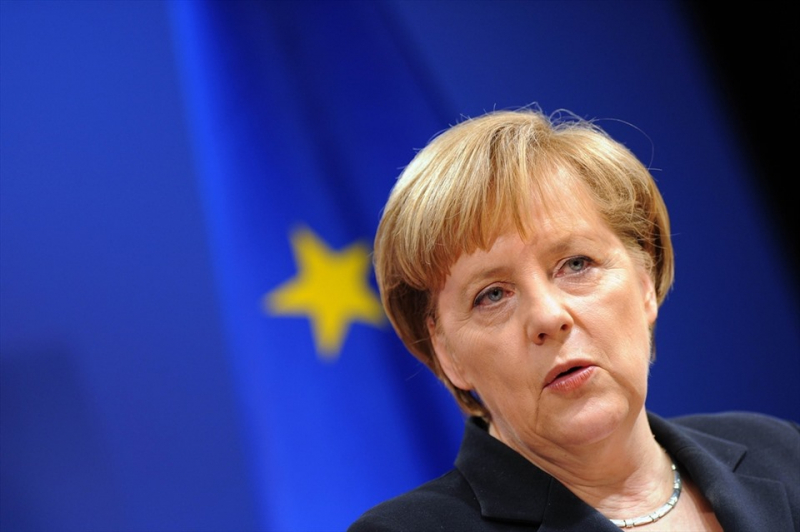
Photo: Laodong.vn 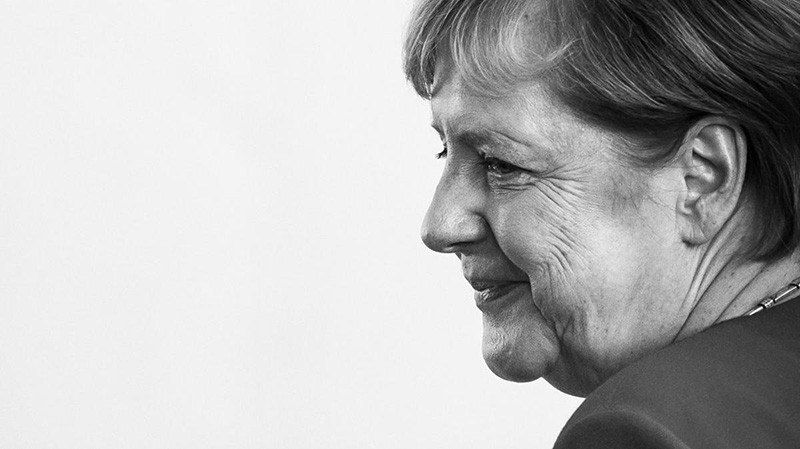
Photo: Baoquocte.vn -
Angela Merkel consistently assumes a central role through the superb art of negotiation, whether it be in discussions with Russia to resolve the Ukraine crisis, discussions about the terms of a financial bailout for Greece, or discussions about how to handle the largest wave of refugees in European history since World War II.
The civil conflict in Ukraine, the instability over Greece's public debt, and the unprecedented flood of refugees all contributed to Europe being thrown into a major crisis in 2015. The image of German Chancellor Angela Merkel as a genuine European leader began to develop during that period of unrest and conflict. In order to prevent Greece from going into default and quitting the euro area during the Greek public debt crisis, Mrs. Merkel successfully convinced eurozone countries to reduce public spending. Even when it appeared that the talks between Greek Prime Minister Alexis Tsipras and the international creditors had stalled at times, Angela Merkel remained optimistic that a deal would be reached. Every time the German chancellor tries to persuade an EU member state, she repeats the phrase "We can accomplish this" (EU). Ultimately, an agreement between Athens and the EU was negotiated and endorsed by all member states.
She did, however, also face a lot of criticism in addition to admiration for her capacity to inspire more than ever. The female chancellor faced calls to resign at home after making the daring decision to welcome Syrian migrants into Germany, and several EU member states distanced her.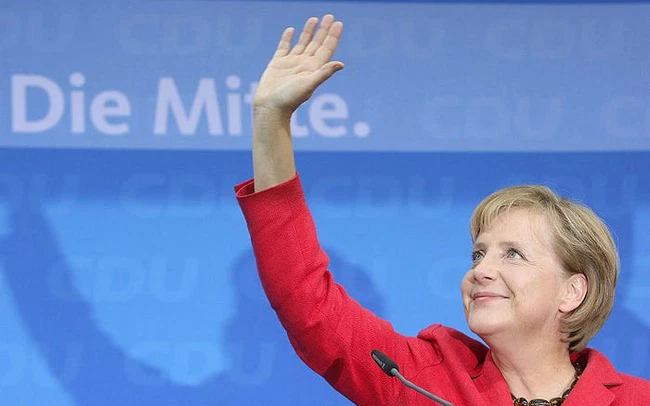
Photo: CafeF 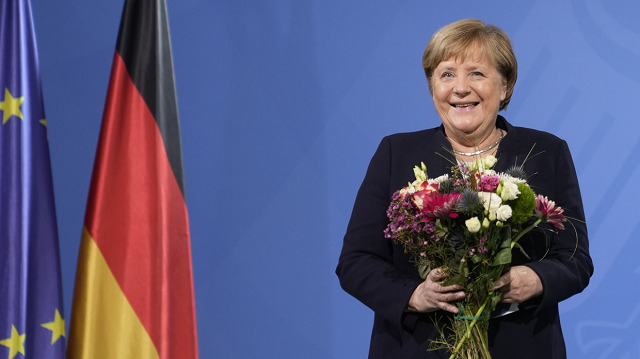
Photo: Cand.com -
Since taking office as Germany's chancellor in 2005, Angela Merkel has developed a reputation as a person of integrity who keeps her personal life private. Few people know the female prime minister's personal or everyday routines, even though she has a significant effect.
During breakfast, Mr. Sauer frequently "pushes Mrs. Merkel on political topics like any other ordinary citizen." Mr. Sauer, who leads a highly thrifty lifestyle, often takes budget airlines rather than riding on a government aircraft with Chancellor Merkel. Mrs. Merkel is a football aficionado outside of work. She participated in the 2014 World Cup victory voyage with the German national team.
Green cabbage and German sausage are reportedly Chancellor Merkel's two favorite foods. In Oldenburg, she received recognition as the "Cabbage Queen" in 2001. Even though she doesn't have much time to cook for herself every day, the German chancellor is a great chef. Ground beef, plum pie, and potato soup are among the German leader's specialties. Merkel, the chancellor, continues to eat as she did during the earlier East German famine. Ms. Merkel stated in an interview with the German publication Superillu: "I still buy something as soon as I see it, even though I don't need it. It's an ingrained habit, rooted in an economy where everything is scarce. People are always looking to hoard whenever they can."
She frequently works long hours without much time for rest and can function normally on only 4 hours of sleep each day. Instead, on weekends, the female prime minister frequently zzzs. I can stockpile things and then fill them back up, like a camel, Merkel claimed.
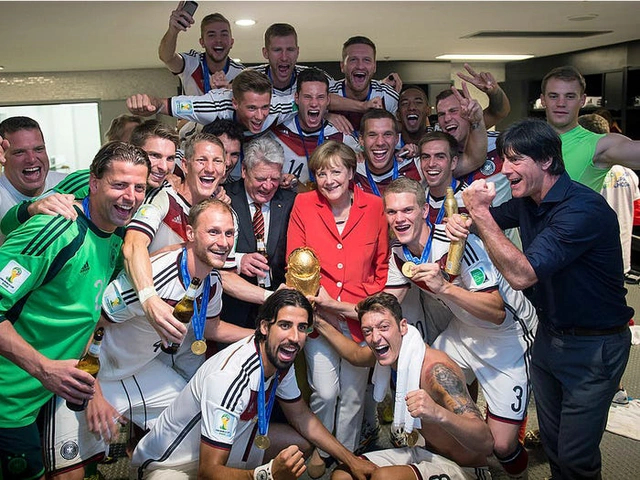
Photo: CafeF - Image of Mrs. Merkel with the football team 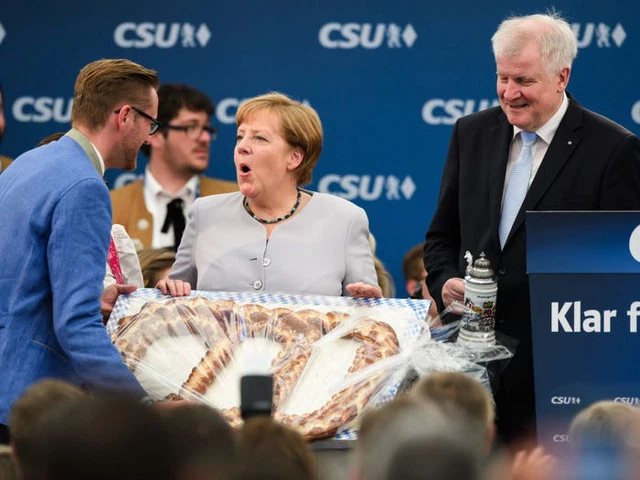
Photo: CafeF - Mrs. Merkel and her husband -
Angela Merkel was raised in the East German town of Templin, north of Berlin, where her father served as a Protestant pastor. She was born in 1954 in Hamburg, in the northwest. Merkel excelled in arithmetic and Russian in school to the point that she could subsequently communicate with Russian President Vladimir Putin in his language. She married physicist Ulrich Merkel at the age of 23, while they were both physics students at Leipzig. The union, however, barely lasted four years. 1981 saw their decision to divorce. Together with quantum chemist Joachim Sauer, Angela Merkel made another advancement in 1998.
In 1986, Merkel earned a Ph.D. in quantum chemistry. She then spent some time working at the Berlin-based East German Academy of Sciences. She soon learned, however, that despite her exceptional talent, she could not compete with scientists from the old West Germany once Germany was reunited.
"Merkel has a very good academic record, but the standards simply don't match the West, so she can't compete in research and academia. So Merkel decided to take a risk with her career. how to find the right political party," remarked Stefan Kornelius, Merkel's biographer and political editor of the Suddeutsche Zeitung.
Before joining the CDU, Merkel belonged to the fledgling opposition party known as the Democratic Awakening. Merkel secured a parliamentary seat for the CDU in the first all-Germany general election in 1990, and she afterward advanced quickly within the center-right party. In 1991, she was appointed Minister of Women and Children. Merkel was named minister of the environment three years later, and she was in that post in 2016 for the first UN climate summit. The first global attempts to lower CO2 emissions started in 1995. Merkel was chosen to lead the CDU party in 2000 and was appointed Chancellor of Germany in 2005. She has endured several difficult obstacles during the past 16 years.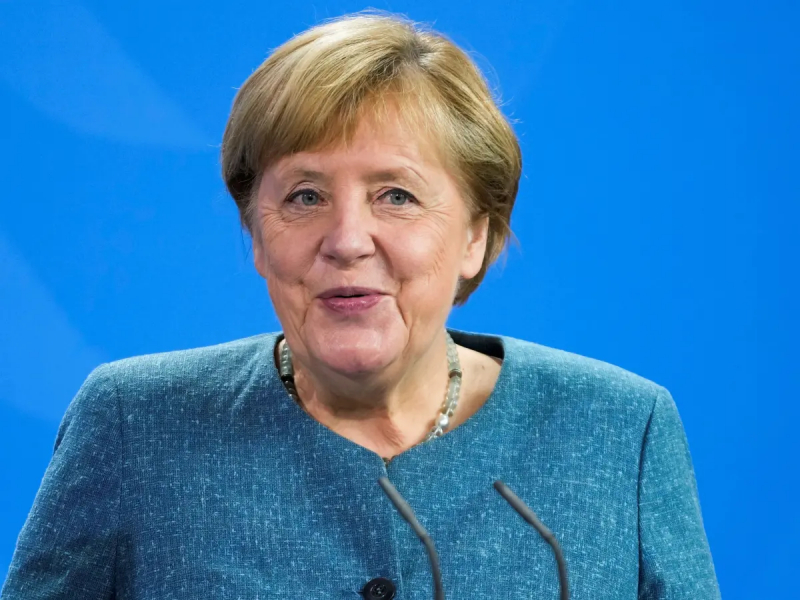
Photo: Quartz 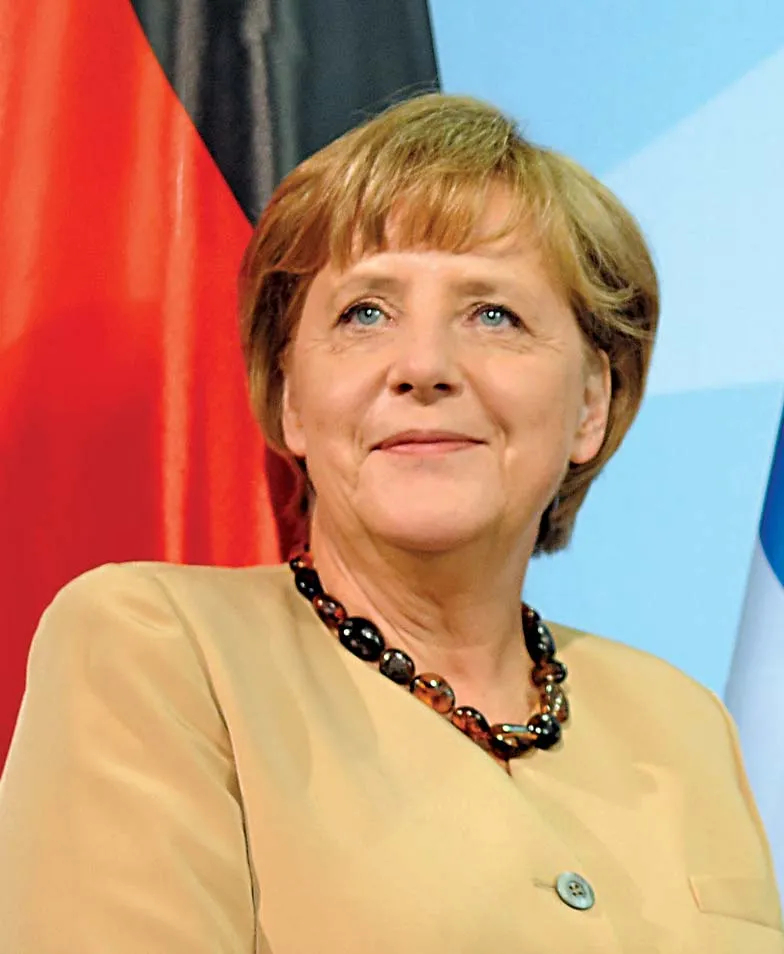
Photo: Encyclopedia Britannica -
On January 28, Germany reported its first Covid-19 infection, although the danger had little immediate impact on daily life there. The prohibition on large gatherings is largely ignored. However, on March 10, when theaters and entertainment venues were shut down, individuals could no longer meet their vital necessities. A few days later, Berlin's vibrant nightlife also became darker. There are several pedestrians restaurants were shut. The foundation of the capital's cultural and social life was upended. Residents of this formerly divided city are recalling the past once more.
With the embargo order, Mrs. Merkel appears to be sensing the sentiment of the populace. On March 18, she delivered a rare remark on television while seated behind a table covered with the flags of Germany and the European Union, after the closure of schools and changes to society in that country nearby Europe (EU).
The forthright appeal for social solidarity, which was highly rare for Merkel, and the recognition of the limits of the government, according to analyst Miller, were the two most important points of Merkel's address rather than the medical advice. "I am convinced that we will pass this test if all the people take this as their duty," she said. At a time of growing anxiety, Merkel's words of comfort rooted in both reason and passion are seen as being of the utmost importance. The mood in Germany does not seem to be as dismal anymore, and it appears that the country is weathering the pandemic better than many other nations. The vast majority of individuals continue to follow the Prime Minister's precise directions.
Merkel consulted specialists from well-funded scientific research organizations, including public health organizations like the Robert Koch Institute and public university networks, during the Covid-19 reaction. A biological research center called the Berlin Institute of Health recently focused on Covid-19 analysis.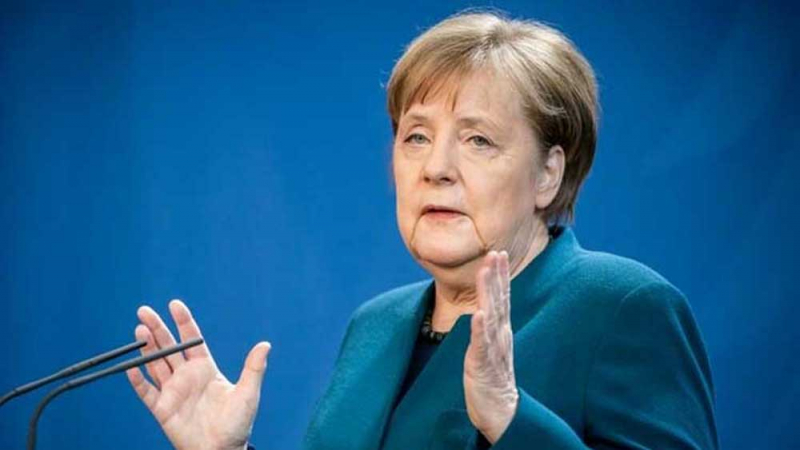
Photo: BBC - German Chancellor Angela Merkel speaks about Covid-19 in Berlin on March 22. 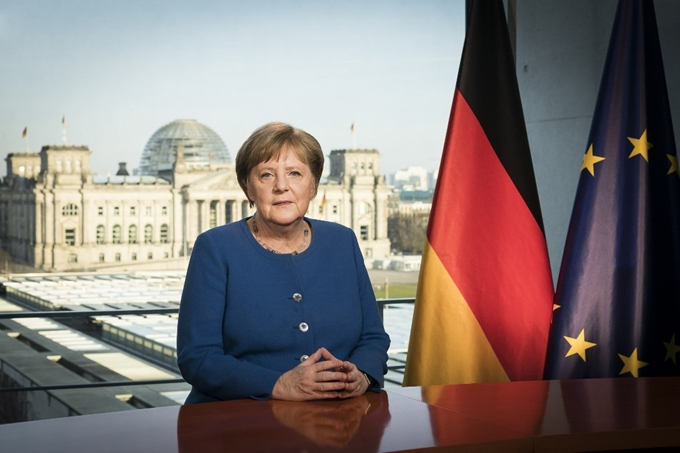
Photo: Quartz

























